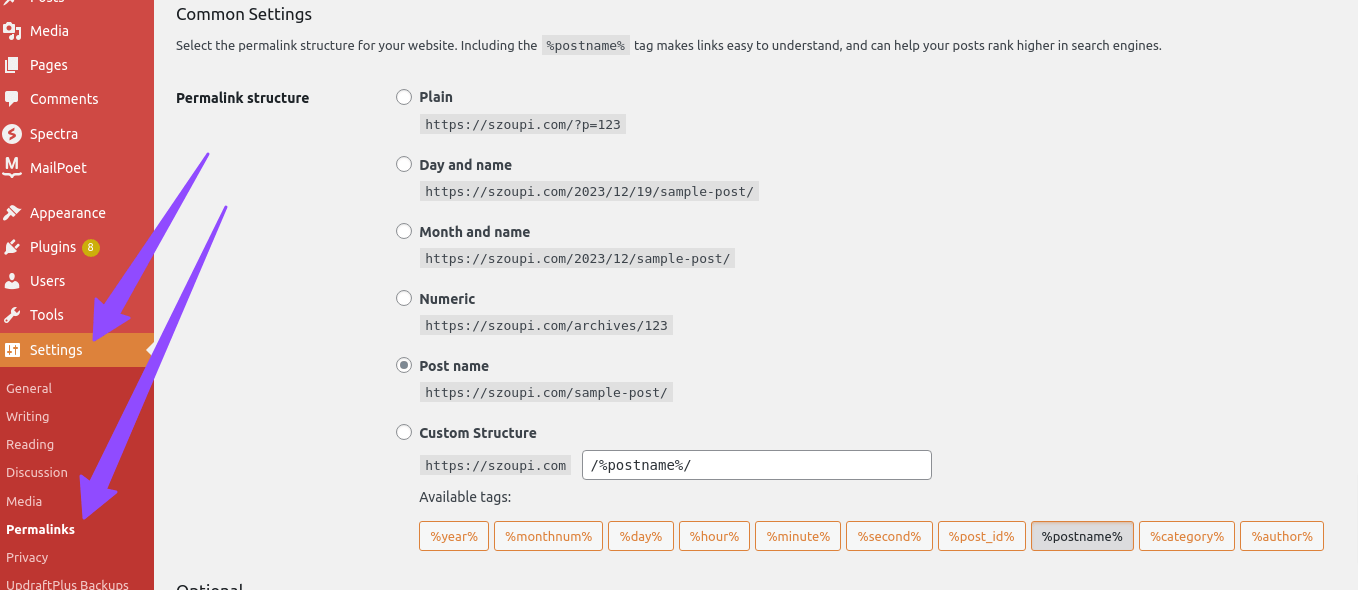Introduction
Search Engine Friendly URLs, also known as SEO-friendly URLs or clean URLs, are website addresses that are designed to be easily understood by both search engines and users. These URLs are structured in a way that includes relevant keywords and descriptive phrases, making it easier for search engines to determine the content of a page and rank it accordingly.
Benefits of Search Engine Friendly URLs
Implementing search engine friendly URLs on your website can provide several benefits:
- Improved SEO: Search engines can easily identify the content of your web pages, leading to better indexing and higher rankings in search results.
- Higher Click-Through Rates (CTR): Users are more likely to click on a URL that is descriptive and relevant to their search query, increasing the chances of attracting organic traffic.
- Better User Experience: Clean URLs are easy to read, remember, and share, enhancing the overall user experience on your website.
Implementation in WordPress
WordPress, one of the most popular content management systems (CMS), offers built-in support for search engine friendly URLs. To enable this feature, you need to navigate to the Permalinks settings in the WordPress admin dashboard. Here, you can choose from various permalink structures, including:
- Plain: The default setting, which uses query parameters and does not include any keywords or descriptive phrases in the URL.
- Day and Name: Includes the date and post name in the URL, such as
example.com/2022/01/01/sample-post. - Post Name: Uses only the post name in the URL, such as
example.com/sample-post. - Custom Structure: Allows you to define a custom permalink structure using various tags, such as
/%category%/%postname%/.

Implementation in Joomla
Joomla, another popular CMS, also provides options for implementing search engine friendly URLs. In Joomla, you can enable this feature by accessing the Global Configuration settings. Under the SEO Settings tab, you can enable the “Search Engine Friendly URLs” and “Use URL Rewriting” options. Once enabled, Joomla will automatically generate clean URLs based on your article titles and menu item aliases.
Implementation in Drupal
Drupal, a flexible and powerful CMS, requires additional modules to implement search engine friendly URLs. The most commonly used module is the Pathauto module, which allows you to define patterns for generating clean URLs based on various criteria, such as content type, taxonomy, or user roles. By configuring the Pathauto module, you can ensure that your Drupal website generates SEO-friendly URLs automatically.
Implementation in Other CMS
While WordPress, Joomla, and Drupal are popular CMS platforms, other content management systems also offer support for search engine friendly URLs. Many modern CMS platforms, such as Magento, Shopify, and Wix, provide built-in options or plugins/extensions to enable clean URLs. It is important to consult the documentation or support resources specific to your chosen CMS to understand how to implement search engine friendly URLs.
Conclusion
Search Engine Friendly URLs play a crucial role in optimizing your website for search engines and improving the overall user experience. By implementing clean URLs in your CMS, such as WordPress, Joomla, Drupal, or other platforms, you can enhance your website’s visibility, attract more organic traffic, and ultimately achieve better search engine rankings.
Remember to regularly monitor and update your URLs to ensure they remain relevant and aligned with your website’s content and SEO strategy.
Photo by Marten Newhall on Unsplash


